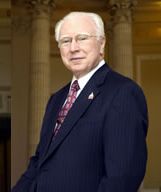n what will hopefully be the first of a string of interviews with women leaders in the evangelical Church, I’m honored to present a dialogue with Patricia Gundry. Pat is one of the founding leaders of the evangelical world opening up toward women. Her book,
) was the first evangelical book I and many others encountered on the topic. (The other for me was Elaine
.) These books in some ways ratified my “Jesus movement” understanding of women and leadership, while challenging me regarding marriage, “static” gender roles, and my privileged position as a white male in
and the church. I hope you enjoy Pat’s responses to my brilliant questions. Perhaps, if demand calls for it, we’ll have her back on
for another go.
 [Patricia Gundry, 2006. Photo copyright Pat Gundry.]Patricia, your name is synonymous with evangelical feminism. Maybe we can start with the “evangelical” in that? How did you become an evangelical Christian?
[Patricia Gundry, 2006. Photo copyright Pat Gundry.]Patricia, your name is synonymous with evangelical feminism. Maybe we can start with the “evangelical” in that? How did you become an evangelical Christian?I was born to a Southern Baptist mama who taught me the song "Jesus Loves Me" when I was very small, and took me to church and Sunday school wherever we lived. At age six I was attending some sort of after school thing for children in a woman's home in the
Los Angeles area, and was told that Jesus stood at the door knocking and wanted to be invited into my heart. I invited him in, and consider that my conversion experience. I remember the inner joy I experienced at that time, that continued onward.
At age thirteen I went forward during the Invitation at the end of a hell fire and brimstone sermon at a Missionary Baptist church in Corcoran, California to make sure it was clear that I had really been converted, and was then baptized. Unlike most Baptists, though, I was immersed twice. Just as I was catching my breath, the pastor dipped me under again. Later, he explained that he'd not immersed some part of me completely, and he knew there would be objections if he didn't do it again. I don't know what kind of Baptist that makes me, maybe a DuoBaptist.
Well, I’m glad you survived your baptism—er, both of them! Evangelicals emphasize Scriptural authority. How central to your life is the bible, and how “authoritative” is it as far as matters of faith or practice?I bought my own Bible when I was a child, at what we used to call a dime store. I think I paid a dollar and a half or maybe even two dollars for it, which was a lot of money to me. I read it continuously from then on, and became a whiz at odd bits of Bible info, such as, I can name the three daughters of Job and give you the lineage of Queen Esther's persecutor.
The Bible has always been the most important book I own, and I consider it authoritative, Inspired, and the rulebook for matters of faith and practice.
What first made you aware of feminism? Were there secular feminists whose articles or books affected you?If you mean the modern feminist movement, it was reading Betty Friedan's book,
The Feminine Mystique, which I thought had major flaws. I thought she used a straw man (woman in this case) argument. But it did alert me to the movement.
Previously, while still in High School, I'd discovered Simone De Beauvoir's
The Second Sex on a public library shelf. I found that book to be interesting, well presented, and when compared later, much better than Friedan's.
What was the first previously held belief of yours that you began to rethink regarding women?That's hard to answer, because I was raised to feel free to notice, challenge, and seek to solve and understand contradictions and paradoxes. I remember wondering, in high school, how to reconcile certain Bible passages that appeared to contradict each other. I assumed there were answers that would make sense, but didn't know where to find them.
And where did that take you next?I began to ask questions of those I thought would know the answers, and was surprised at the answers I received. I'd be given some brush off non-answer, or my respondent would make a joke about my asking, or give me an answer I knew wasn't valid. I thought I'd have to keep asking until I found someone who knew more about it.
How did your husband respond to these discoveries of yours?He didn't know the answers to my questions either. But, I thought, well, he's young, he just hasn't studied that well enough yet. Later, I found to my surprise that hardly anyone had. It didn't seem to be an important area of study to the Bible scholars of the past.
Did he accompany you intellectually as you made your journey, or did you go there first and then explain to him what you’d found?I went there first. And, in fact, it took him a long time to come to the same conclusions.
I'd been very informal and casual about my questioning until I had a sort of "light bulb" moment that set me on a path to seriously study the Bible passages in question.
While serving a meal to a visiting preacher I asked him how he interpreted the passage [regarding women in the church] in I Timothy. To my shock and surprise, this man, who was usually very friendly and gracious, snapped at me, "Why do you want to know?!" He was sitting at my table, eating my spaghetti, and being obviously rude to me about a simple conversational question.
That's when the light bulb moment came to me. I thought, He doesn't know. None of them know. But, they are willing to limit all women's lives and participation on the basis of Bible passages they know
are problematic and they don't know how to interpret. I determined to someday search and find the answers to my questions, and to share them with all other women who wanted to know too.
How did you describe these new ideas?It was simply sharing information I'd discovered while searching for answers about the Bible passages that had puzzled me.
When did you write Woman Be Free
?It was published in 1977, took a year from acceptance at the publisher to publication, and I worked on it steadily for at least a year, so it must have been 1974 and 1975. But, I'd been informally researching it for a long time.
 [Patricia Gundry in the mid-seventies, the Woman Be Free era. Photo copyright Pat Gundry.]Were you a “feminist” or an “egalitarian” or what?
[Patricia Gundry in the mid-seventies, the Woman Be Free era. Photo copyright Pat Gundry.]Were you a “feminist” or an “egalitarian” or what?I had always been a feminist and egalitarian, before I knew those terms. I'd been raised to be an independent thinker, confident in my ability to do and be whatever I set out to do or be. It came as a shock to me as an older child to realize that some people would want to limit my opportunities solely because I was female.
Labels are so quickly affixed within the evangelical fold, what did others call you?I don't think I had a label. I thought of myself as a biblical feminist, when someone asked me to give them some descriptive term, that's what I'd tell them.
But, most people didn't know about
Woman Be Free for some time. So, no one was giving me any labels, they didn't know I existed. The book didn't have an easy entry into Christian bookstores, many bookstore owners being quite conservative, and some of my publisher's own salesmen even advising booksellers not to stock it.
I smile here because as a man, I’m not sure if I get to call myself a feminist legitimately or not, but have been called “a goddess worshipper” among other things by anti-feminist critics...I like the term "feminist" because it has great historic origins. The first feminists were Christian women working to gain voting rights for all women. If I'm going to have some label attached to what I believe, I think I should get to define that label. I like Alan
Alda's definition, "A feminist is someone who believes women are people." Feminists believe that women are fully human, and if they are, then they need to have full access to human rights and opportunities.
Your husband worked for a conservative evangelical institution. What transpired there as a result of your embracing feminist / egalitarian ideas?It was a very interesting situation, and different from what many probably think.
Stan and I were guests at the home of Moody Bible Institute's Dean of Faculty, Sherrill Babb. As we were conversing in their living room, Stan said to
Sherril, "There is something you need to know," and proceeded to tell him that I had an upcoming book, and what it was about. Stan said he wanted to know if Sherrill thought that subject and my approach to it, which he said he substantially agreed with on most points, would be a problem either to him or at Moody.
Babb said, no, not at all from his perspective, but that if it ever did become an issue at Moody, that Babb would defend Stan, and if he couldn't successfully defend him in the matter, Babb, himself, would resign.
Which he did, after unexpected elements and events caused Moody's administration to change their position away from toleration of diversity of opinion on the interpretation of Bible passages regarding women.However, for two years after the book was published, there was no problem at all.
During that time I was invited to be one of the main speakers at an all day women's event at Moody, speaking on the subject of the book.
I was also a participant on Moody Radio shows at least twice, again on the subject of my book.
I'd been asked to present the book's ideas, with full approval, at Moody, until we were targeted by a political action group (STOP ERA) that had been putting pressure on Moody to make a policy statement opposing the Equal Rights Amendment, and their efforts led to a letter writing campaign denouncing us to Moody administrators.
I'd been invited to speak at a local meeting of Housewives for ERA (HERA, founded by Methodist minister's wife Anne
Follis) on the subject of my book (not on ERA at all). In the newspaper announcement of the meeting it mentioned that my husband taught at Moody. Interestingly, I'd not wanted to include that info on the vita sheet I'd prepared for the newspaper. But, Stan had seen it sitting on an old pump organ we had, read it, and insisted that I add to where I'd just said my husband was a teacher that he was a teacher at Moody Bible Institute, saying he was proud of working at Moody. I said I didn't want to ride on his coattails. But he said he really wanted me to add the Moody bit. I included it, against my better judgment. If I'd followed my own inclination, he probably would not have been fired.
See what happens when you submit to your husband? (Okay, another pathetic attempt at humor gone awry...)I thought that was pretty ironic too.
Once, when we were having a social evening at our home for Moody students, I noticed a couple of the male students talking animatedly to each other in front of the bookcase where I kept my cookbook collection (It will no longer fit into a single bookcase, but it did then.) One of them finally asked me, doubtfully, "Mrs. Gundry, are those *your* cookbooks?" They'd had a hard time believing a feminist could be interested in such things.
But, I've been, and am, quite domestic. I have four children, and was always a stay at home mom, there before and after school, and the children also came home for lunch when they were in grade school in Wheaton, Illinois. I'm also a scratch cook, an organic gardener, and can sew, crochet, and knit. I've compiled and had a cookbook published, by Zondervan, and reprinted it myself later via my micro publishing house Suitcase Books.
So feminists can cook after all, huh? Then what’s my excuse? Never mind… So what happened next at Moody?Local STOP ERA members reading the newspaper announcement saw an opportunity for them to get leverage to use on Moody. So they attended, and then wrote letters to Moody administrators denouncing me, and my husband too, by association. The letters were full of distortions and downright lies, which Moody administrators said they knew were fabrications. One of the letter writers also sent a copy of her letter to a radio preacher who broadcast an impassioned plea for listeners to write to Moody and object to their having a man like that on the faculty.
As Moody began receiving a volume of letters demanding to know why they had such a terrible teacher on their staff, and saying they would not contribute as long as that was the case, certain administrators decided it might be a problem after all.
Moody's solution: they simply forced him to resign, and then could say he was no longer there, eliminating the need to do anything further.
Ouch. More on the up side, were you involved in the founding of any of the egalitarian women’s groups that came into existence in the seventies or eighties?I was involved in the founding of
Christians for Biblical Equality (CBE) but did not become a member until a few years ago. I helped write most of the founding documents, and provided the name for the CBE journal,
Priscilla Papers.
How did you react to the split between Christians for Biblical Equality (or was it their immediate predecessor – I’ve forgotten the history on some of these names) and the pro-gay group now called Evangelical and Ecumenical Women’s Caucus?I thought it was a foolish thing for the EWC pressure group to do, to try to railroad something into the charter that would inevitably hurt the group and its members in conservative churches.
I guess the secondary issue in this is homosexuality and its role (real or imagined) in the overall debate over gender mutuality.The issue of homosexuality has absolutely nothing to do with equality for women. They are two distinctly different rights issues, and I've always insisted it's a mistake to combine them. I know that some feminists and many anti-feminists attempt to link the two issues, but I believe it is a forced connection, usually for the purpose of furthering their own particular agendas.
Have the arguments against mutuality / egalitarian ideas changed much from the 1970s / 80s til now?
I don't know. I've never tried to persuade anyone to agree with me or become egalitarian in their outlook. I'm happy to allow traditionalists, whatever they currently call themselves, to continue to believe what they do about women. There are so many people who want to have answers to the same questions I had that I figure the best practice is to share the information with them and allow those who aren't interested to go their own way in peace.
Who in your opinion are the most articulate egalitarian voices today?
Oh, that would be me [large smile]. There are some very articulate voices online, which is where I do most of my egalitarian issue reading and writing. But, they aren't well known outside the forums and discussion lists they frequent.
What books would you recommend for someone really wanting to dig into the theological questions surrounding women, men, and the biblical framework regarding their interrelationships?
Because my books are pretty foundational, I always send people to my web site:
http://www.patriciagundry.com/ where I've posted the full text of my first two books,
Woman Be Free and
Heirs Together. And, additionally, I'd recommend they surf around on CBE's site:
http://www.cbeinternational.org
What is the most destructive book / argument in your opinion regarding women?
It would be hard to choose one book. I guess I'd have to say it would be a toss-up between
Summa Theologica, by Thomas Aquinas, and the
Malleus Maleficarum, by
Jakob Sprenger and Heinrich Kramer.
As for the most destructive argument, I think that would be that there are "patterns" in the Bible that must be used as absolute hierarchical models, such as the argument that woman being created second in the Genesis account proves that women are to be ruled over by men.
The use of "patterns" that supposedly prove hierarchy absolutes was a most destructive part of Medieval theology and Bible interpretation. Most contemporary Christians have rejected those Medieval hierarchical beliefs, but traditionalists still cling to the one placing males over females.
You deal with abuse fairly extensively in some of your writing. Do you think the hierarchalist (complementarian) viewpoint contributes to abuse in marriages or/and the Church? If so, how?
I disagree with some of my fellow egalitarians in this regard. I do not believe the hierarchicalist viewpoint
causes abuse. Abuse is caused by the individual who chooses to abuse. I believe abuse is an addiction, that the addict changes his or her uncomfortable emotional state by creating it in a chosen vulnerable person, then the abuser feels better.
But, I do believe that the
hierarchalist viewpoint, applied, creates an environment that is sheltering and enabling for abusers. It provides a cloak for them, and more opportunities to abuse than would be available in a non hierarchical environment.
Thank you so much, Patricia, for your witness and your family’s witness for women and men in the Church. 



